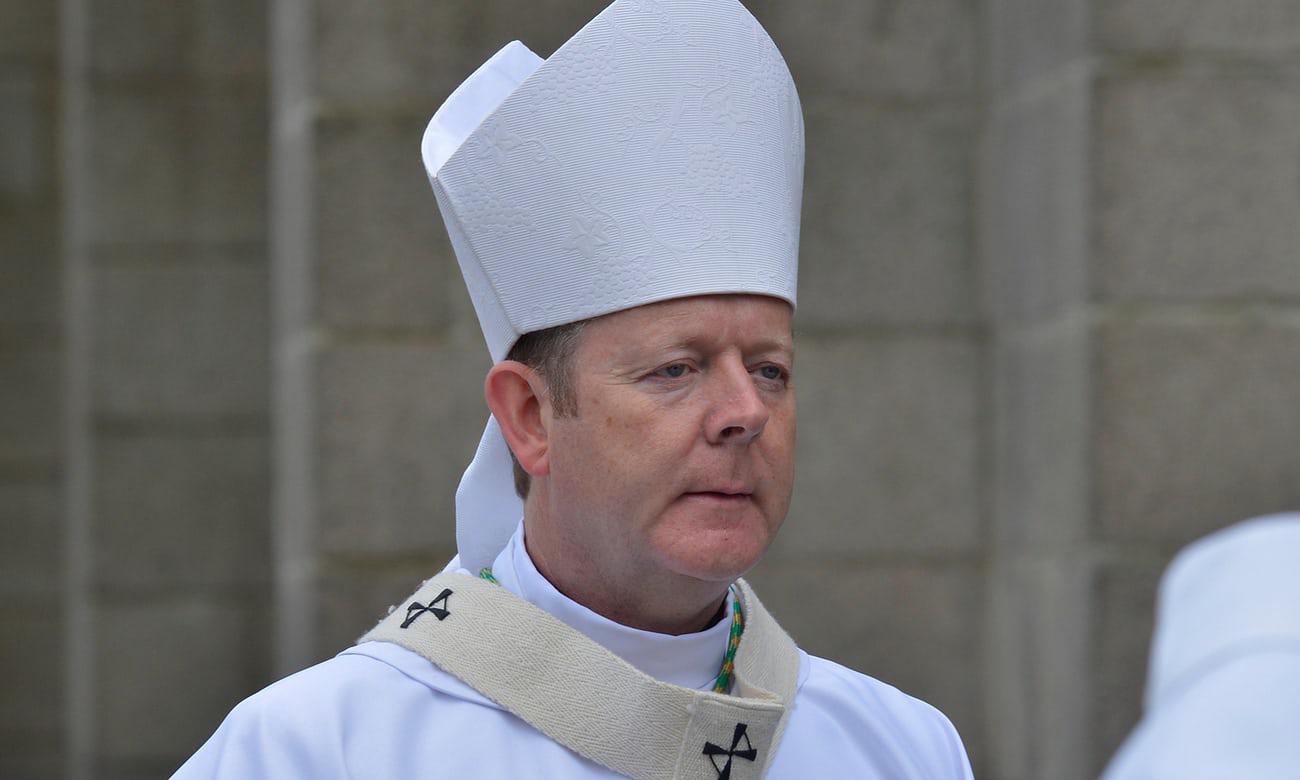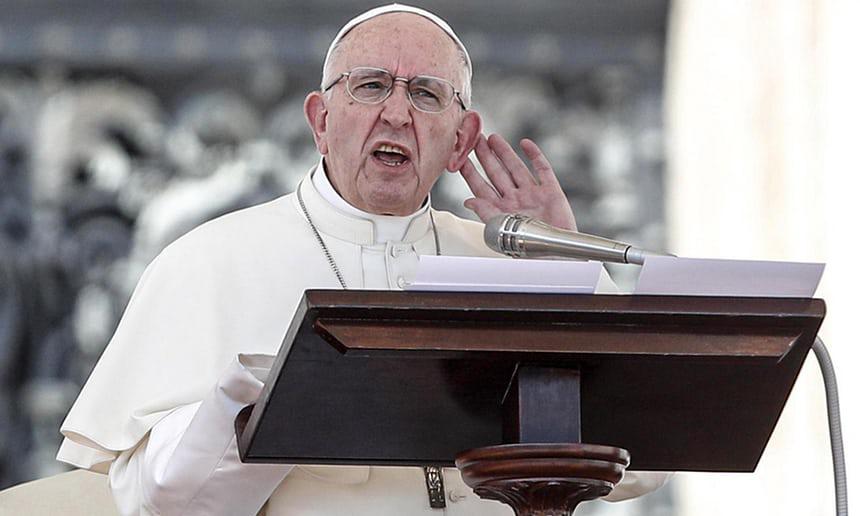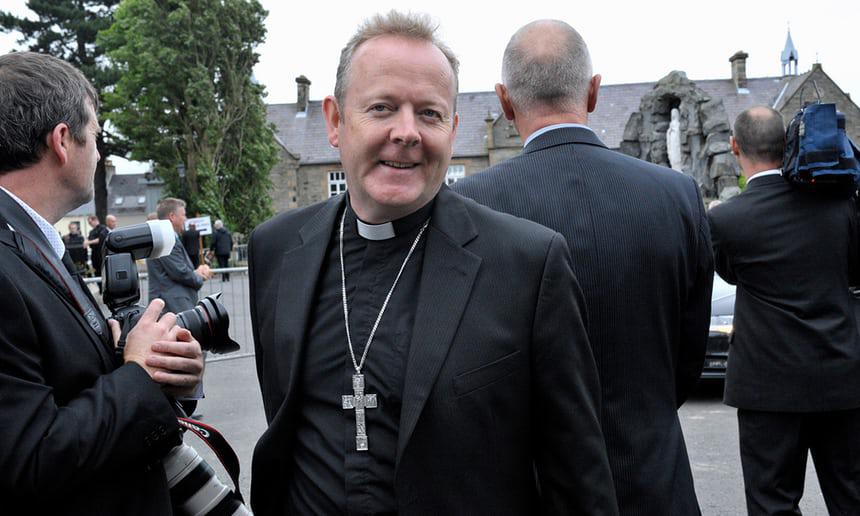|
Eamon Martin: Ireland's Catholic priests need to spread the word at home
By Harriet Sherwood
Catholic priests in Ireland need to be missionaries in their own country to meet the challenges of a changing society, Eamon Martin, the most senior church figure in Ireland, has said ahead of the pope’s visit to Dublin next weekend. “We are in mission territory in many ways as Catholics in Ireland,” Martin, who is archbishop of Armagh as well as primate of all Ireland, told the Guardian. “Ireland was always renowned as a missionary country, sending priests all over the world to spread the Catholic faith. But there’s a need for mission here in Ireland now, a need for a new evangelisation.” In the four decades since the last papal visit to Ireland, that of John Paul II in 1979, the country has seen a steep decline in the numbers of people attending mass and the moral authority of the church has been shattered by revelations of child sexual abuse and mistreatment of vulnerable women in the Magdalene Laundries. In 1979, 93% of the population identified as Catholic, whereas earlier this year the European Social Survey found that only 54% of people aged between 16 and 29 claimed affiliation to the Catholic church. Ireland was a “very different society” today, said Martin. “Actually, to be honest, it’s a much more exciting and challenging place to be a priest and a pastor than to be part of some kind of big systemic culture in Ireland in which everyone does everything because that’s what the church said they have to do. Those days are long gone.” Pope Francis has faced calls to address issues such as the legacy of sexual abuse and its cover-up, LGBT rights and the role of women in the church during his 36-hour visit to the World Meeting of Families. “I would be amazed if he didn’t [talk about abuse],” said Martin, adding that it was “very reasonable” for survivors to demand the church take institutional responsibility. “Sometimes people ask me: ‘Do you think the church can draw a line under the issue?’ I really don’t think we can. “When you meet survivors of abuse, they never draw a line under it. It’s with them for the rest of their lives – the horrific betrayal of trust, the sins and the crimes of the church, our shameful efforts at avoiding scandal which in the end created more scandal … It’s a shadow that’s there all the time.” The “awful, heinous wound on the body of the church” was not just a matter for local parishes or dioceses to deal with. “This is a systemic issue for the whole church. This is not an isolated issue of a bad priest in a particular school or parish. This is an issue where the whole culture of our church wrongly facilitated abuse. “Pope Francis can offer something, speaking on behalf of the church universal, that could be extremely helpful for all of us – survivors and those of us doing our best to deal with the legacy, the awful hurt and trauma that this issue has left.” Although other institutions and organisations in society were also facing up to the legacy of abuse and cover-up, the Catholic church could provide a model of “how a worldwide institution can accept its responsibility and then become, please God, at some stage instrumental in the healing of the terrible hurts that have happened. Pope Francis is the sort of person who can lead us on that journey.” He added: “Francis, ever since he arrived on the scene, has been challenging for all of us. He’s pushed us to consider the marginalised, the disadvantaged, to reach out to migrants, the homeless, to those forgotten in the normal day-to-day discussions in the public square. A lot of what he has said has disturbed our comfort as a church.” Martin acknowledged the church needed to do more to encourage women in leadership roles. A poll published by the Sunday Independent found that 62% of the Irish public supported the ordination of women priests, and 55% said the Catholic church did not treat women equally. The archbishop said there was a “clerical culture” in Ireland, in which leadership was seen to be priests or bishops. “There are a lot of women already playing central leadership roles. We have outstanding women leading up our Catholic schools, for example, but if they do not feel affirmed in their role then we are failing and I’m saddened,” he said. In response to criticism and claims of exclusion from LGBT groups, he said for the first time the World Meeting of Families will host two panel discussions on how the church can “reach out to families struggling with this issue”. “How can we be faithful members of our church and present our teaching in a truthful, yet loving and merciful, way to all our children? That for me is the challenge,” Martin said. “Many groups feel excluded, feel we are insensitive in our language and our approach. The WMF wants to be welcoming, but people must realise this is an event of the Catholic church.” Martin was disappointed that Francis would not be visiting Northern Ireland during his brief visit, but hoped the pope would address the situation there. “I think he should affirm our efforts for peace. People are still carrying the wounds and traumas of the Troubles. I would love Pope Francis’s presence to speak to these people who are suffering because of conflict, war and violence in Ireland and other parts of the world.” He expected “thousands upon thousands” of people from Northern Ireland to travel south to see the pope, and said he would continue to invite Francis to make a papal visit to the north.
|
.
Any original material on these pages is copyright © BishopAccountability.org 2004. Reproduce freely with attribution.


